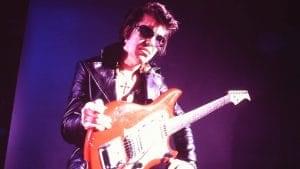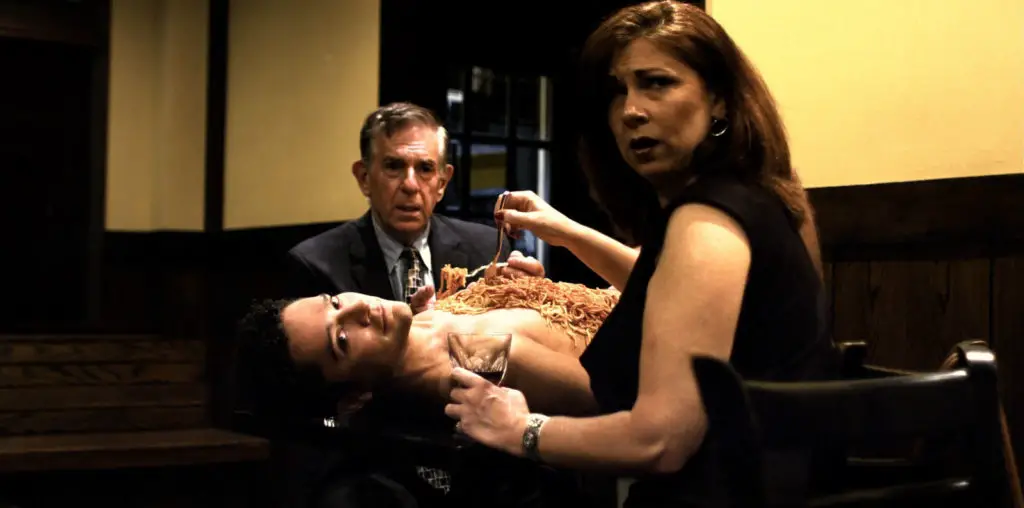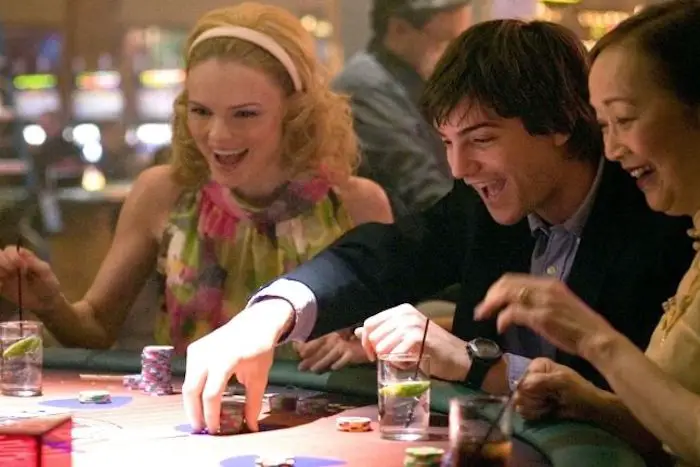
Americans take pride in the fact that music like jazz, blues, country and rock ‘n roll started in the United States, but the roots of those sounds actually predate the arrival of Columbus in 1492.
American Indians made an invaluable contribution to the sounds we’ve exported to the rest of the world, and the new documentary Rumble: The Indians Who Rocked the World demonstrates that the influence Native Americans had on our music is far wider than has been previously acknowledged.
Director Catherine Bainbridge (with assistance from cinematographer/co-director Alfonso Maiorana) interviews an astonishing variety of musicians and scholars who can pinpoint how first nation sounds and ideas worked their way into the culture as a whole.
For example, Bainbridge cites the example of jazz vocalist Mildred Bailey, who picked up the gliding note style of singing she popularized in the Coeur d’Alene Reservation in Idaho. In Rumble, Tony Bennett readily acknowledges how her delivery affected his own.
Similarly, 50s rocker Link Wray recorded the ferocious power chord-driven “Rumble,” which managed to get banned because just listening to the tune seems violent. Contemporary guitarists like Slash and “Little” Steven Van Zandt credit their rebellious playing to axe men and women like Wray.

“…demonstrates that the influence Native Americans had on our music is far wider than has been previously acknowledged.”
As the film reveals, much of the reason many of us don’t know about the American Indian influence on our pop music is because several of the performers who had native roots often kept them secret. In the film, Wray’s relatives admit that their roots were once considered a dark secret instead of a source of pride.
Even using music to discuss the issues that Indians faced could be taboo. In 1964, Johnny Cash released his gut wrenching Bitter Tears: Ballads of the American Indian but had to take out an ad in Billboard with his own money to get DJs to play the songs. He even personally sent out 1,000 copies of the albums to radio stations to get his tunes on the air.
Bainbridge’s approach is fairly conventional, but she and the other filmmakers are remarkably thorough. Just about every assertion is backed up by experts like Van Zandt (who runs a radio show full of obscure delights and who used to publish Native Nations magazine) and Rolling Stone writer David Fricke. In addition, Rumble is loaded with surprises about familiar artists and songs whose American Indian roots aren’t obvious.
For example, Guardians of the Galaxy opens with Chris Pratt confidently strutting to Redbone’s “Come and Get Your Love.” The sibling vocalists Pat and Lolly Vegas have Yaqui and Shoshone roots. Watching the scene again takes on a whole new meaning knowing that the band were open about their roots and that Star Lord’s discontent reflects their own in tunes like “We Were All Wounded at Wounded Knee.”

“Jimi Hendrix not only talked about his Cherokee roots but frequently wore stage costumes that practically advertised his bloodline…”
Rumble features obvious inclusions like Robbie Robertson, the Canadian guitarist and primary songwriter for The Band, who has frequently discussed his Mohawk and Cayuga heritage and even written about it in his music and in his memoir Testimony. Guitar idol Jimi Hendrix not only talked about his Cherokee roots but frequently wore stage costumes that practically advertised his bloodline.
Some delightful examples that might not be so apparent are axe man Jesse Ed Davis, whose nimble solos punctuate Jackson Browne’s “Doctor My Eyes” and the late Ozzy Osbourne drummer Randy Castillo, who could pound in an almost superhuman fashion but at the same time made himself remarkably accessible to fans who wanted to follow in his musical footsteps.
Rumble packs a lot of material and great sounds in its 103 minutes. Bainbridge could have made a great doc on just Wray or Robertson. From the evidence offered in the film, perhaps American Indians might have also established the first rule of showbiz, “Always leave ‘em wanting more.”

Rumble: The Indians Who Rocked the World (2017) Directed by Catherine Bainbridge, Alfonso Maiorana. Written by Catherine Bainbridge, Alfonso Maiorana. Starring: Robbie Robertson, Cyril Neville, Ivan Neville, Buffy Sainte-Marie, Robert Truillo, Charlie Sexton, David Fricke
7 out of 10


